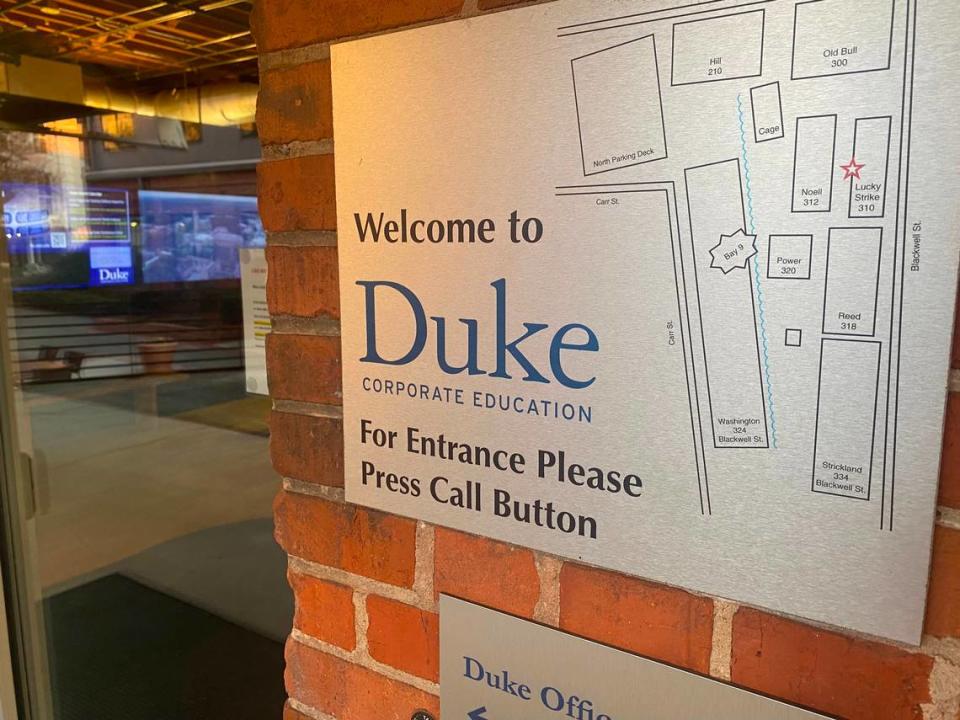Open Source: NC workers have a right to discuss their salaries. They’re often told not to.
I’m Brian Gordon, tech reporter for The News & Observer, and this is Open Source, a weekly newsletter on business, labor and technology in North Carolina.
Whether employees choose to tell colleagues how much they earn is one thing, but the right to share salary information is — in the vast majority of industries — unquestionably clear. The National Labor Relations Act of 1935 enshrines it. The National Labor Relations Board enforces it.
It’s viewed as an integral step to organizing. If workers don’t know how much others make, they lack essential knowledge to advocate for better pay. Yet, it’s a labor right that’s routinely misunderstood by both sides of the work dynamic.
“Employers often don’t know about labor law either,” said UNC law professor Jeff Hirsch. “They might not always have the best motives for doing it, but most of them aren’t aware that it’s actually illegal.”
It doesn’t have to be a strict “don’t talk wages” rule; even a light suggestion from a supervisor violates the rules.
This week, I wrote about a former employee of university-affiliated Duke Corporate Education in Durham who filed an unfair labor practice charge after he openly discussed pay and was later fired. He knew the law and contacted the regional NLRB office in Winston-Salem to submit a charge. NLRB investigators later determined a Duke CE supervisor had instructed workers “not to discuss their salaries” during a 2022 virtual meeting.

Duke CE layers disputed the complaint. The organization and the former employee settled the case last week.
The NLRB doesn’t track data on wage discussion violations, but a 2021 study from the Institute for Women’s Policy Research found nearly half of employees had been prohibited or dissuaded from disclosing wages in the past. North Carolina labor advocates agree its a common violation. And when reporting on this topic a few years ago, I spoke with a staff member from the regional NLRB office who said it was frequent.
Younger generations are more transparent about wages. In March, the consumer financial publication Bankrate found almost 42% of Gen Z workers have revealed this information to a coworker, compared to 40% of millennials, 31% of Gen X workers and only 19% of baby boomers.
So conflicts over workplace pay discussions may only increase. Whether you’re a worker or manager, its best to know the law.
Onto the rest of this weeks news:
Credit Suisse exits RTP deal
“Cost synergies” are ominous two words for employees following a merger. On Feb. 7, UBS said it sought such synergies as it integrates fellow Swiss bank Credit Suisse, which UBS acquired last year in an emergency/shotgun deal.
Credit Suisse is a major employer in the North Carolina Triangle. It arrived here in the mid-2000s and grew to more than 2,200 workers.
But that headcount is shrinking. As of Dec. 31, Credit Suisse had 1,753 full-time employees based at its Research Triangle Park facilities. The bank shared this in a Jan. 30 letter to the North Carolina commerce secretary, in which it requested the state end its jobs incentive agreement.
Signed in 2017, Credit Suisse promised to create 1,200 local jobs and retain 1,500. As of last year, it had created around 880 positions under the agreement. But the company said it won’t meet its future hiring requirements.
“UBS is committed to remaining in North Carolina and intends to retain a significant presence in North Carolina,” Credit Suisse’s U.S. chief operating officer told the state. She said UBS also plans to keep the new RTP building Credit Suisse opened in 2019.

What is Epic now worth?
Epic Games is keeping the answer a secret. But it hasn’t always. After attracting investors in 2020, 2021 and 2022, the private Cary-based video game maker did publicize its rising valuations:
2020: $17.3 billion
2021: $28.7 billion
2022: $31.5 billion
But since securing $1.5 billion from Disney last week, Epic has been mum about its updated worth. The company declined to say, as did a Disney spokesperson.
The answer is $22.5 billion, according to an article in The Information, which cited “a person familiar with the manner.” That’s still more than the Fortnite creator was worth in 2020 but a notable 29% drop from just two years ago.
“The enthusiasm at the height of the pandemic and the overall market movement has diminished somewhat since then,” said Joost van Dreunen, author of the 2020 book “One Up: Creativity, Competition, and the Global Business of Video Games.”
Despite the apparent valuation drop, van Dreunen says Epic’s increased partnership with Disney (following recent deals with Sony and Lego) should further legitimize the Cary company’s quest to build out a metaverse.

Short Stuff: Four-day school week, brought to you by SAS
Growing the grid. Siemens Energy plans to add 559 jobs in Charlotte and Raleigh (but mostly Charlotte) to expand production of power transformers and other energy grid technologies.
Big haul. Areteia Therapeutics, a biotech company in Chapel Hill, raised an additional $75 million to expand the development of an asthma treatment. Overall, the startup has received $425 million in Series A funding.
Another big haul: Higharc, a Durham startup that offers homebuilders a cloud platform to improve operations, secured $53 million in Series B funding.
Cisco cuts again: One of the Triangle’s largest employers will lay off another 5% of its global workforce. It comes a little over a year since Cisco announced the same percentage cut in late 2022. That layoff round impacted at least some RTP employees. It remains unclear whether the current cuts will too.
Have a tip? You can reach out confidentially with any information (cell/Signal: 919-861-1238).
Less school, same education? SAS Institute is a major Triangle employer, but like many business-to-business companies, what the analytic firm actually does is not always visible to the public.
But here’s an example: A new report from the Missouri Department of Elementary and Secondary Education, created with the help of SAS researchers, found dropping a day from the school week had minor effects on academic achievement.
National Tech Happenings
Meta’s Quest 3 is better than the Apple Vision Pro. The unbiased source? Uh, Mark Zuckerberg.
Alicia Keys hit a wrong note during last weekend’s Super Bowl halftime performance. But the NFL and Apple Music seemed to alter the video to correct this error when it uploaded the song on YouTube. A harmless edit or a harbinger of a future in which technology changes official records and events?
President Joe Biden joins TikTok in an effort to reach younger voters. Cue the 30 Rock meme:

Thanks for reading!

